Whether you’re living in France or just visiting, learning some facts about the country will help you get to know it better; not to mention impress your friends at your next trivia night. So prepare to put your French knowledge to the test as we share 30 facts about France that might just surprise you.
- 1. France is the largest country in the EU and is sometimes called the hexagon
- 2. France is the world’s most popular tourist destination
- 3. French was the official language of England for about 300 years
- 4. Louis XIX was the king of France for just 20 minutes, the shortest ever reign
- 5. ‘ Liberté, égalitié, fraternité ‘ or ‘liberty, equality, fraternity’ is the national motto
- 6. The French army was the first to use camouflage in 1915 (World War I)
- 7. In France, you can marry a dead person!
- 8. The French invented tin cans, the hairdryer, and the hot air balloon
- 9. France was the first country in the world to ban supermarkets from throwing away food
- 10. The first public screening of a movie was by the French Lumière in 1895
- 11. The oldest person who ever lived was a French woman named Jeanne Louise Calment
- 12. France legalized same-sex marriage in 2013
- 13. France has more Nobel Prize winners in Literature than any other country
- 14. Europe’s highest mountain is Mont Blanc in the French Alps
- 15. The world’s first artificial heart transplant and face transplant both took place in France
- 16. The Louvre is the most visited museum in the world
- 17. French gastronomy was awarded UNESCO World Heritage Status in 2010
- 18. France produced the most expensive bottle of wine in the world
- 19. You might get a fish stuck on your back on April Fool’s Day
- 20. The French eat around 30,000 tons of snails a year
- 21. Live snails must have a ticket to ride high-speed trains
- 22. The croissant was actually invented in Austria in the 13th century
- 23. Turning a baguette upside down is seen as unlucky in France
- 24. France produces around 1.7 million tons of cheese a year in around 1,600 varieties
- 25. French law forbids couples from kissing on train platforms
- 26. Paris Gare du Nord is Europe’s busiest railway station
- 27. The French rail network is the second largest in Europe ninth biggest in the world
- 28. The world’s greatest cycle race, the Tour de France, is more than 100 years old
- 29. The tradition of wearing a white dress originated in France in 1499
- 30. At least 35% of all music played on private radio stations must be French
Cigna Global
Enjoy peace of mind while living in France with Cigna Global’s long-term international health insurance plans (12+ months). Get tailored coverage, direct billing with many providers, complex case management, and global care on demand, with access to a network of 1.5+ million doctors, specialists, and therapists.
1. France is the largest country in the EU and is sometimes called the hexagon
France is the largest country in the European Union, covering a total area of 551,695 square kilometers. However, it is only the third-largest country in Europe, behind Ukraine and the European portion of Russia. Around a third (31%) of France is forest and it is the fourth most forested country in the EU, after Sweden, Finland, and Spain. The country is also sometimes referred to as l’hexagone due to its six-sided shape.
2. France is the world’s most popular tourist destination
It might be time to brush up on your French language skills, because France is the place to be, according to the latest tourism figures. A whopping 89.3 million people visited the country in 2018, making it the most visited destination in the world. The country’s capital, Paris, is also the third most visited city in the world, behind Bangkok and London. Time to get packing!
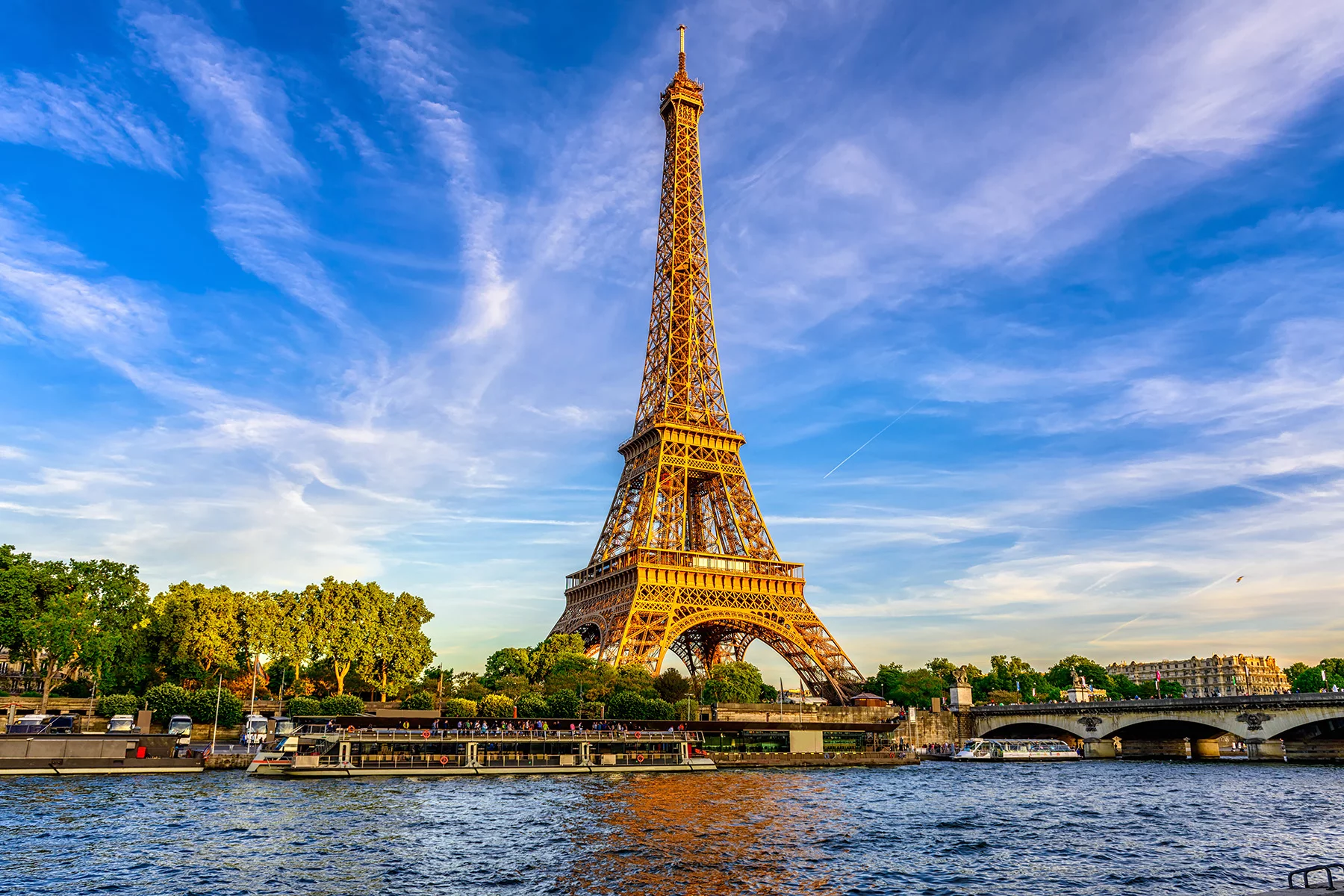
3. French was the official language of England for about 300 years
It’s hard to imagine that French was the official language of England between 1066 and 1362. But after William the Conqueror led the Norman conquest and subsequent occupation of England in 1066, he introduced Anglo-Norman French to the nation. This was spoken by royalty, aristocrats, and high-powered officials, some of whom couldn’t speak any English! In 1362, however, parliament passed the Pleading in English Act, making English the official language of government. This was because Norman French was used for pleadings, but was largely unknown to the common people of England, who had no knowledge of what was being said in court.
4. Louis XIX was the king of France for just 20 minutes, the shortest ever reign
Yes, you read the right. The French king only enjoyed 20 minutes of royal fame after his father Charles X abdicated, leaving him to ascend the French throne in July 1830. After this brief period, Louis-Antoine also abdicated in favor of his nephew, the Duke of Bordeaux. This makes him the joint shortest reigning monarch in history. He shares the astonishing record with Crown Prince Luís Filipe, who technically became king of Portugal after his father was assassinated. But he also died from a wound 20 minutes later.
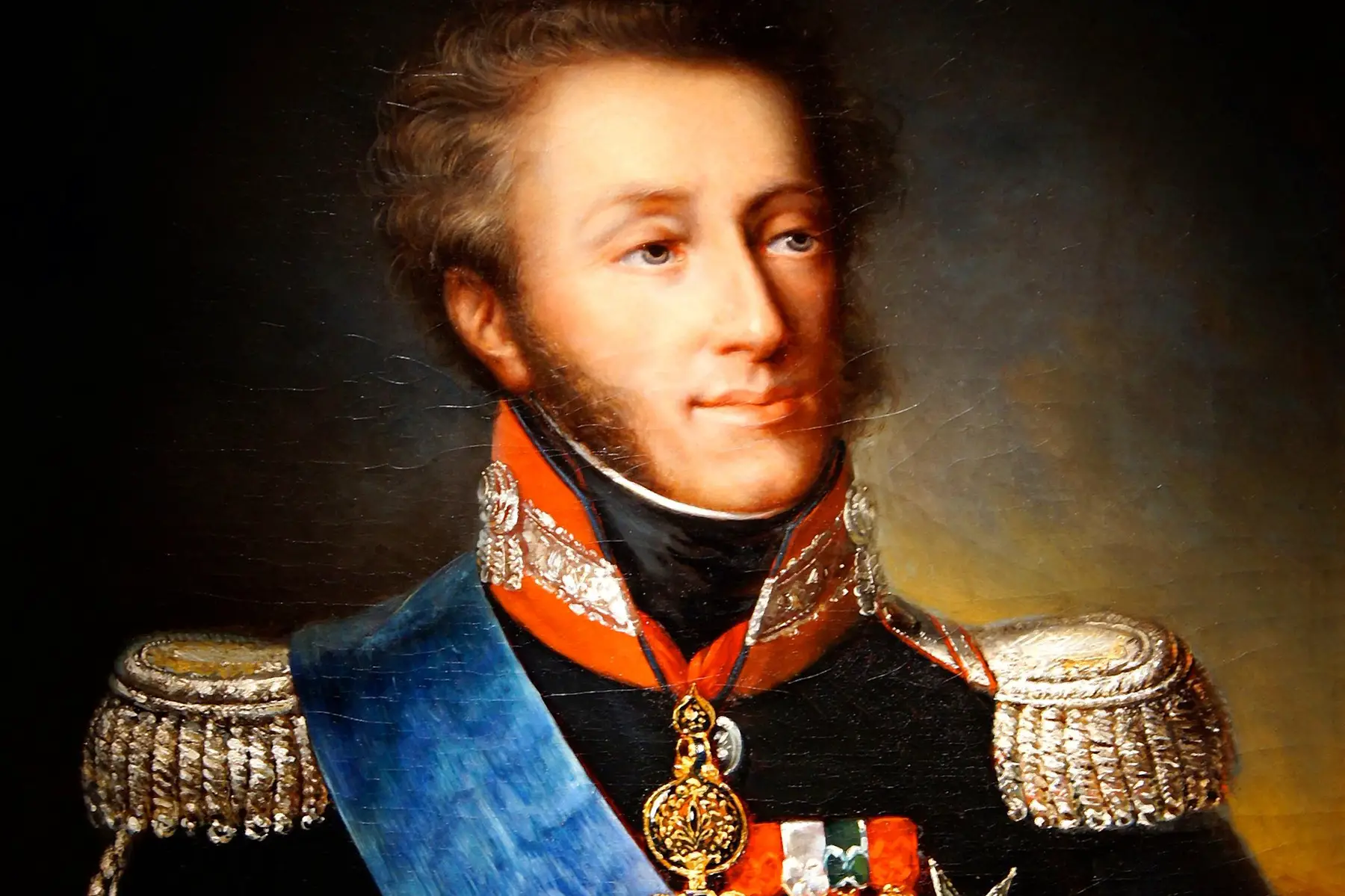
5. ‘Liberté, égalitié, fraternité‘ or ‘liberty, equality, fraternity’ is the national motto
The famous motto first appeared around the time of the Revolution (1789–1799) and was written into the constitutions of 1946 and 1958. Nowadays, you’ll still see it on coins, postage stamps, and government logos; often alongside ‘Marianne’ who symbolizes the triumph of the Republic. The legal system in France is still largely based on the principles set down in Napoleon Bonaparte’s Code Civil after the revolution, in the 1800s.
6. The French army was the first to use camouflage in 1915 (World War I)
Now here’s an interesting fact about France. The word ‘camouflage’ actually comes from the French verb meaning ‘to make up for the stage’. This is because the French Army was the first to create a dedicated camouflage unit in 1915. Guns and vehicles were painted by artists called camofleurs. The following year, the British Army followed suit and established its own camouflage section under the command of Lieutenant-Colonel Francis Wyatt. It was known as the Special Works Park RE (Royal Engineers).

7. In France, you can marry a dead person!
One rather shocking fact about France is that under French law, you can marry posthumously in exceptional cases. This is on the condition that you can prove that the deceased had the intention of marrying you while they were alive. You must also receive permission from the French president. The most recent approved case was in 2017 when the partner of a gay policeman gunned down on Paris’s Champs-Elysees by a jihadist was granted permission to marry his partner posthumously.
8. The French invented tin cans, the hairdryer, and the hot air balloon
It turns out we have the French to thank for many of the useful inventions we know and love today. For instance, French inventor Nicolas Appert came up with the idea to use sealed glass jars placed in boiling water to preserve food in 1809. Pierre Durand later invented the tin can. Braille was also developed by Louis Braille who was blinded as a child. Meanwhile, physician René Laennec invented the stethoscope at a hospital in Paris in 1816 and Alexandre-Ferdinand Godefroy patented the world’s first hair dryer in 1888. The majestical hot air balloon was also pioneered by the Montgolfier brothers Joseph and Etienne who unveiled the world’s first public display of an untethered balloon in 1783.
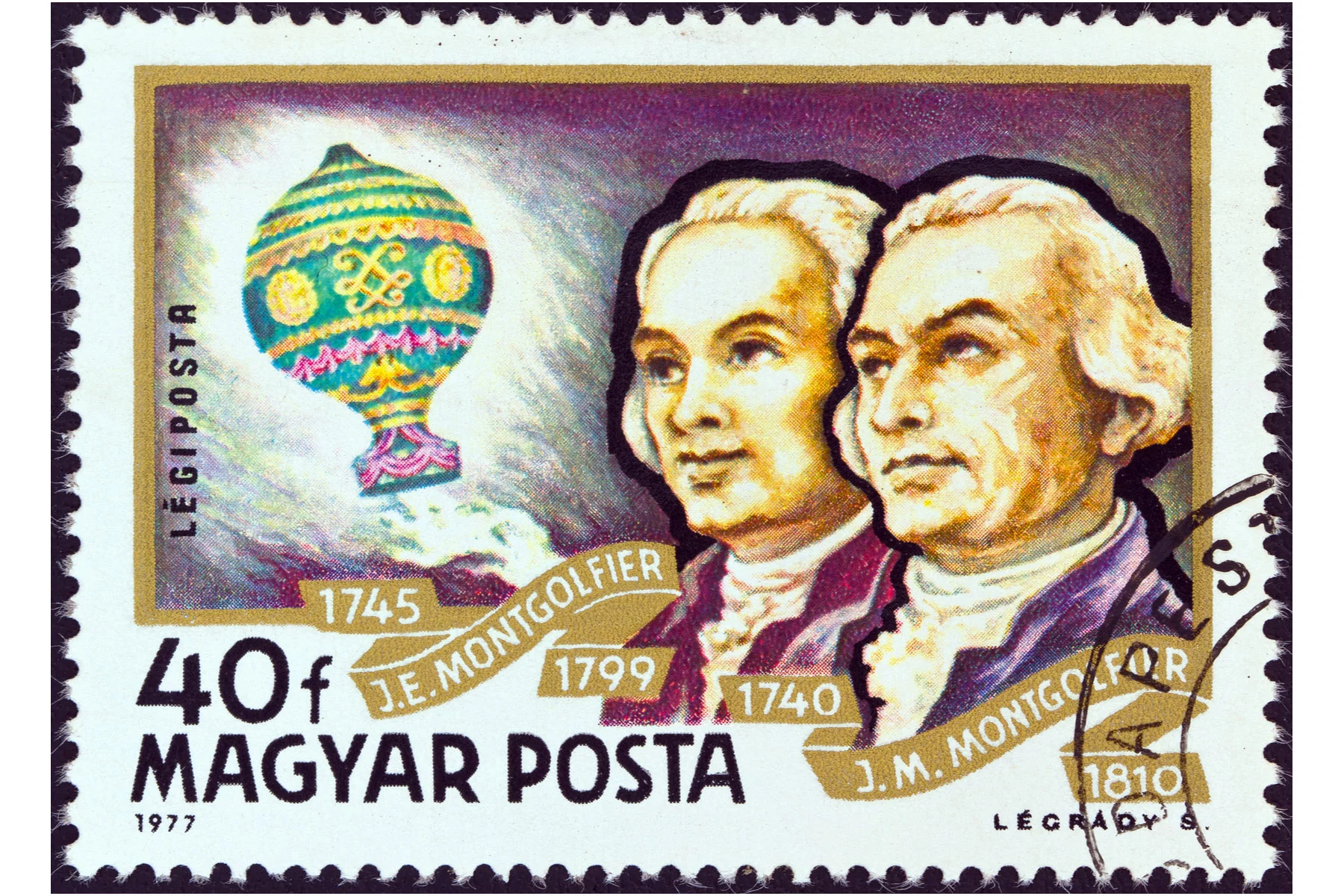
9. France was the first country in the world to ban supermarkets from throwing away food
Now, here’s a French fact to feel proud of. In February 2016, France became the first country in the world to ban supermarkets from throwing away or destroying unsold food. Stores must now donate surplus groceries to food banks and charities. Supermarkets larger than 400 square meters that are caught binning good quality food approaching its best-before date face hefty fines of up to €75,000 or two years of imprisonment. Furthermore, all French supermarkets are also banned from destroying food as a way to prevent ‘dumpster divers’ from foraging in garbage bins. Nice one, France!
10. The first public screening of a movie was by the French Lumière in 1895
The Lumière brothers, Auguste Marie Louis Nicolas and Louis Jean, were famous for their Cinématographe motion picture system and the short films they produced between 1895 and 1905. The famed duo held the world’s first public movie screening on December 28, 1895, at the Grand Café in Paris. Their directorial debut was La sortie des ouvriers de l’usine Lumière (Workers Leaving the Lumière Factory). The five-second-long black-and-white film simply showed workers leaving the Lumière factory and left the audience completely flabbergasted. In 1895, Louis Lumière supposedly said that cinema is “an invention without a future.” Oh, how little did he know…
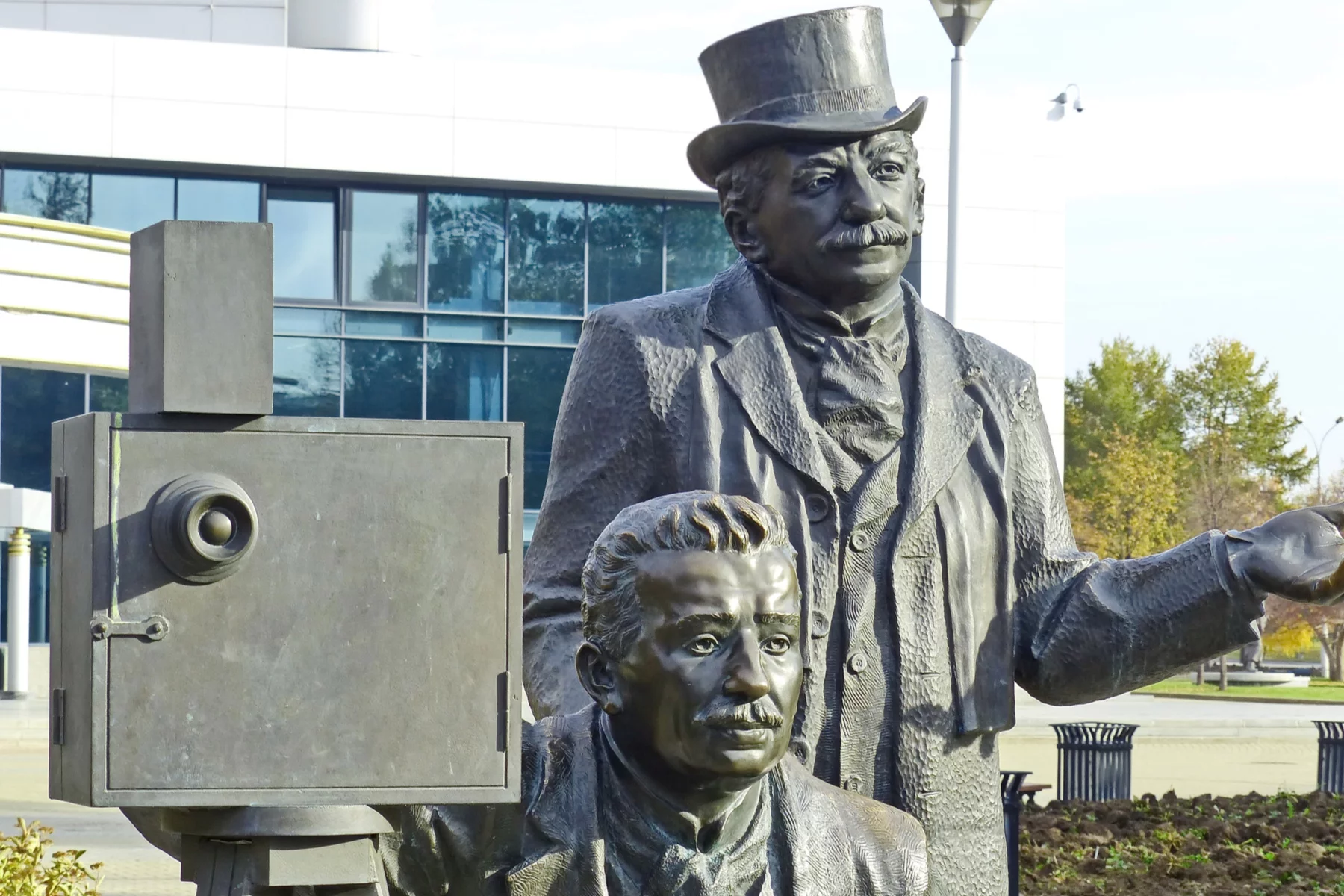
11. The oldest person who ever lived was a French woman named Jeanne Louise Calment
The greatest fully authenticated age to which any human has ever lived is 122 years and 164 days. Jeanne Louise Calment was born in France on 21 February 1875 and died on 4 August 1997. She lived through the opening of the Eiffel Tower in 1889, two World Wars, and the invention of television, the modern motor car, and airplanes. France also ranks 20th in the world for life expectancy with men and women living on average until 82 years old.
12. France legalized same-sex marriage in 2013
When President Françoise Holland signed the bill into law on 18 May 2013, France became the ninth country in Europe and 14th in the world to legalize same-sex marriage. Although polls at the time showed that around 50% of French people supported it, not everyone was happy about it. In fact, thousands of people defending the so-called ‘family values’ took to the streets in protest.

13. France has more Nobel Prize winners in Literature than any other country
With 15 French individuals winning the prestigious award since 1901, it’s fair to say that France has produced some of the world’s most influential writers and thinkers. French poet and essayist Sully Prudhomme became the first-ever winner of the award that year. Among France’s most celebrated poets, novelists, and writers are René Descartes, Voltaire, Charles Baudelaire, Blaise Pascal, Gustave Flaubert, and Victor Hugo.
14. Europe’s highest mountain is Mont Blanc in the French Alps
Standing at a height of 4,807m, Mont Blanc is officially the second-highest mountain in Europe. It takes an arduous 10 to 12 hours to climb to the summit. But if you’re not up for that, you can take a leisurely 20-minute trip up on Europe’s highest cable car on the nearby Aiguille du Midi to get a brilliant view from the top. Discover other amazing places to visit in France.

15. The world’s first artificial heart transplant and face transplant both took place in France
The heart transplant occurred in December 2013 at the Georges Pompidou Hospital in Paris. The bioprosthetic device, which mimics a real heart’s contractions, is powered by an external lithium-ion battery and is about three times the weight of a real organ. French surgeons were also the first to perform a face transplant in 2005.
16. The Louvre is the most visited museum in the world
With a whopping 9.6 million visitors in 2019, the famous Louvre is the most visited museum in the world. Located in the heart of Paris, the magnificent museum is home to around 38,000 works of art and artifacts dating back to prehistoric times. These include the Mona Lisa, the Venus de Milo, and IM Pei’s famous glass Louvre Pyramid which sits in the courtyard. Unsurprising, the Louvre is one of the busiest places to visit in Paris.
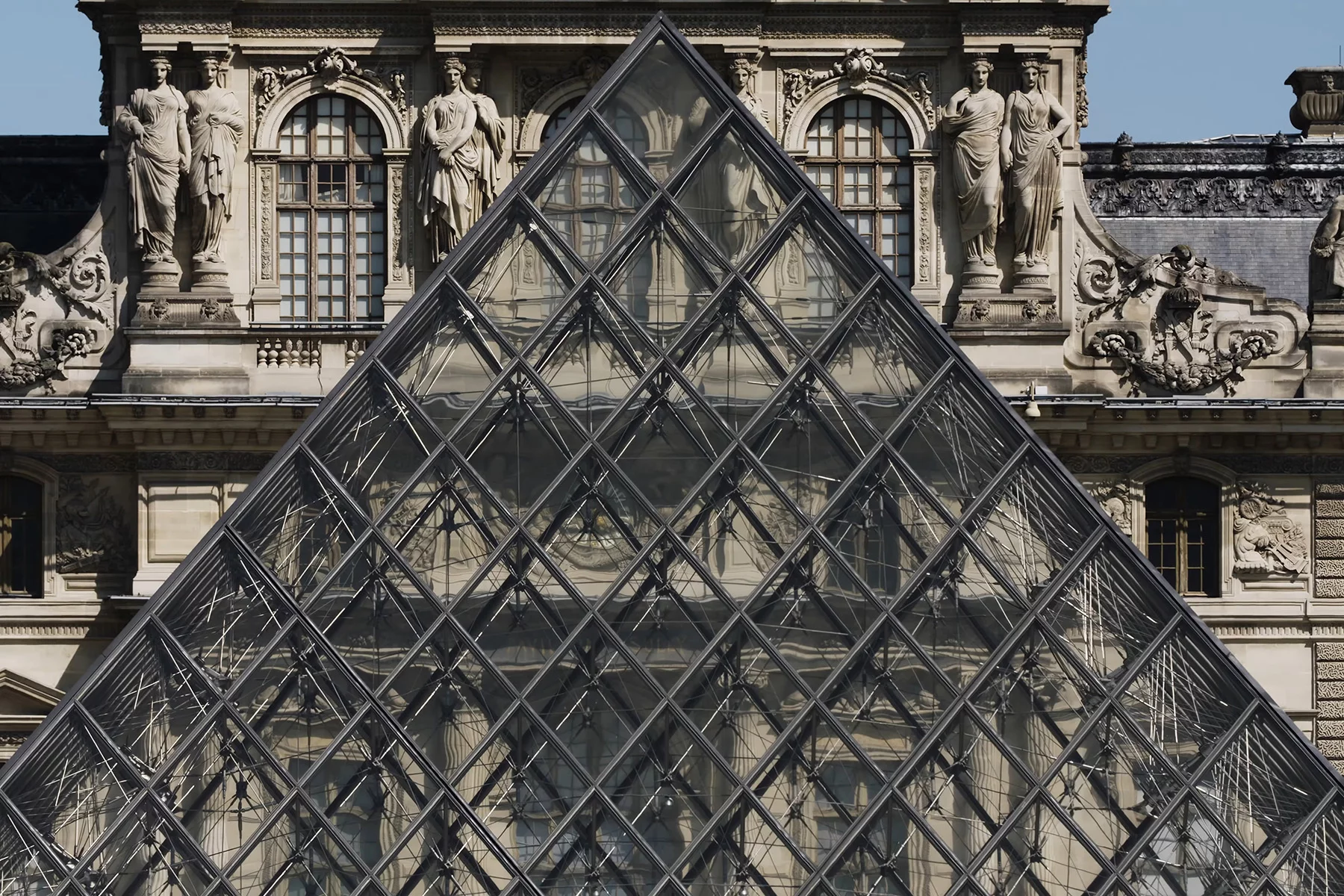
17. French gastronomy was awarded UNESCO World Heritage Status in 2010
France is famous for its exquisite food, which was added to the list of the intangible cultural heritage of humanity by UNESCO in 2010. Experts described the importance of French gastronomy as a social custom aimed at celebrating the most important moments in the lives of individuals and groups, as well as emphasizing togetherness for its function of bringing friends and family closer together and strengthening social ties.
18. France produced the most expensive bottle of wine in the world
Of course, France isn’t only famous for its cuisine, the country also produces some of the best wines in the world – not to mention expensive. A 73-year-old bottle of French Burgundy became the most expensive bottle of wine ever sold at auction, fetching an eye-popping US$558,000. The bottle of 1945 Romanee-Conti was sold to a private Asian collector at Sotheby’s for more than 17 times its original estimate of US$32,000. Ouch!

19. You might get a fish stuck on your back on April Fool’s Day
Now, here’s a whacky fact about France. If you happen to be in the country on 1 April, don’t be surprised if children try to stick paper fish to your back and call you a Poisson d’Avril (April Fish). This tradition is supposed to have started in the 16th century when King Charles XIV of France changed the calendar and those who continued to celebrate the end of the New Year at the end of March were ridiculed as fools. So watch your back!
20. The French eat around 30,000 tons of snails a year
Here’s a slimy fact about France. According to Reuters, the French eat about 30,000 metric tons of escargot yearly. However, around two-thirds of all the snails eaten in France come from eastern Europe and the Balkans. So if you’ve eaten snails in France, chances are they have traveled a long way to get to your plate. The classic French delicacy (served with garlic, parsley, and butter) remains a popular staple of French cuisine.

21. Live snails must have a ticket to ride high-speed trains
No, we’re not making this up – we promise! According to French law, it is against the law to carry live snails on a high-speed train in France without them having their own tickets. In fact, any domesticated animal under 5kg must be a paying passenger. In 2008, a Frenchman was actually fined when a ticket inspector caught him carrying the critters on board a TGV. Luckily, though, France’s state-owned rail company SNCF ended up waving the fine.
22. The croissant was actually invented in Austria in the 13th century
That’s right, believe it or not, the beloved French pastry that we all know and love is actually an adaptation of a kipferl; a Viennese specialty that dates back to the 13th century. As the story goes, Austrian artillery officer, August Zang, founded a Viennese bakery in Paris in 1839. He began serving the kipferl and it quickly became popular with the locals. So much so, in fact, that French imitators began creating their own French version which they called the croissant due to its crescent shape. And the rest, as they say, is history. Imitation is the sincerest form of flattery, after all.

23. Turning a baguette upside down is seen as unlucky in France
Oh, the French are a suspicious bunch! According to folklore, placing a baguette or a loaf of bread on the table upside down puts the people around you at risk of misfortune, or worse – death. This quirky superstition supposedly stems from medieval times when executioners were allowed to grab things in shops without paying for them. Hence, bakers would leave an overturned loaf of bread out for them. And if you came to touch the bread or placed a loaf upside-down yourself, you then had to mark it with the cross before eating it to ward off bad luck. Yikes!
24. France produces around 1.7 million tons of cheese a year in around 1,600 varieties
To say the French love to eat cheese is a huge understatement. The dairy-munching nation produced around 1.7 million tons of cow’s milk cheese in 2018 alone. There are also around 1,600 distinct types of French cheese to try, which are grouped into eight categories. Thankfully, the French don’t keep it all for themselves. In 2018, the country exported more than 679,000 tons of cheese, while almost 895,000 tons were sold on the French retail market in 2017. Merci beaucoup!
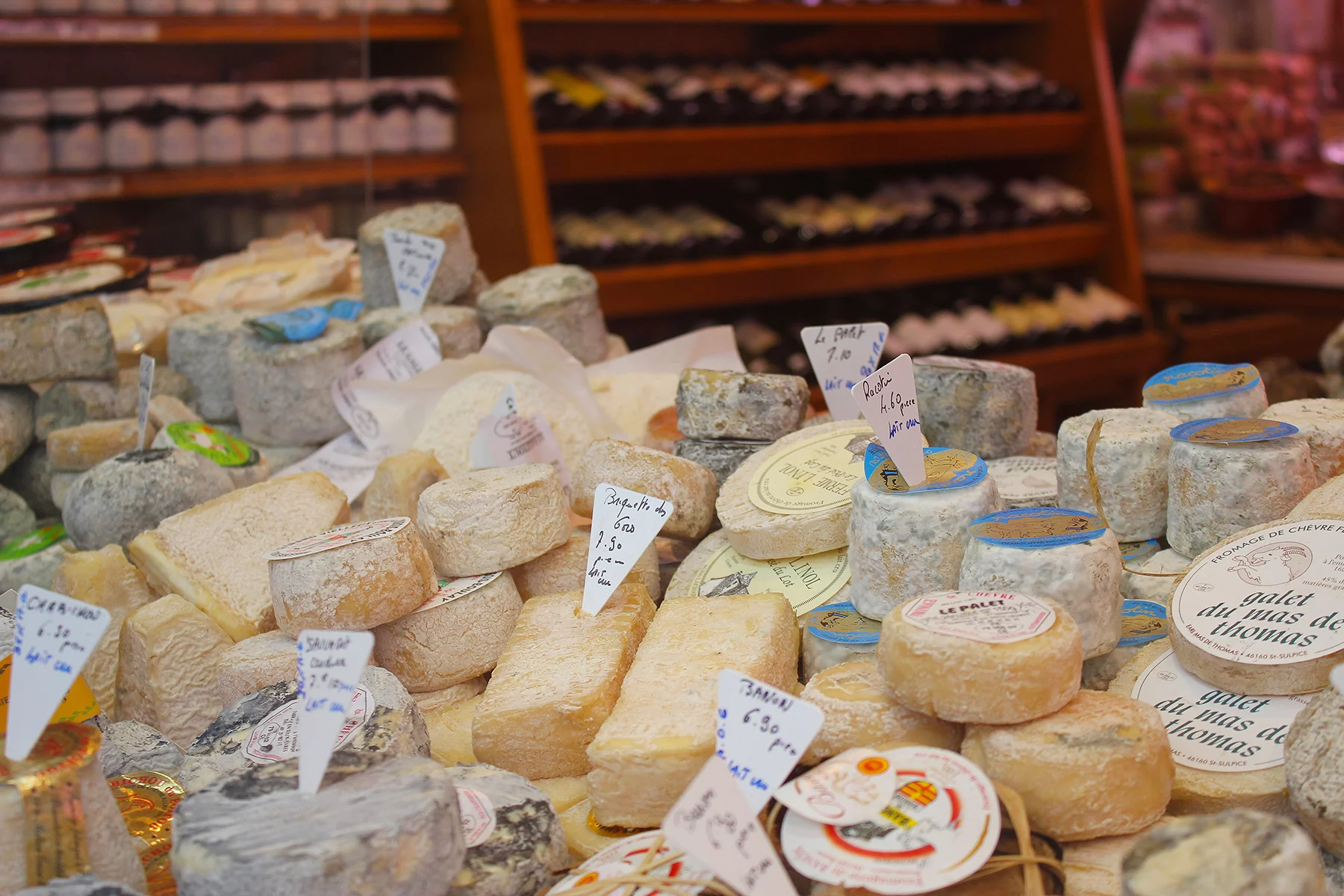
25. French law forbids couples from kissing on train platforms
Speaking of seemingly crazy laws and decrees, this one is totally bizarre. In France, it is actually illegal to kiss while a train is on the platform. This old law was introduced in 1910 at the request of rail chiefs who wanted to prevent the amorous French from delaying the departure of trains. All kissing on the platform must now be done before the train arrives. There goes that dramatic Hollywood movie kiss!
26. Paris Gare du Nord is Europe’s busiest railway station
While on the subject of trains… Gare du Nord in Paris is the busiest railway station in Europe and in the world (outside of Japan). More than 214 million passengers pass through it each year. The original station was built in 1846 but became too small for operations and was therefore demolished and rebuilt in 1889. Further extensions were carried out between the 1930s and 1960s. The station is also due to undergo more expansion work in order to prepare for the 2024 Summer Olympic Games in Paris. This is to increase its capacity for an additional 200,000 daily passengers. Better avoid rush hour!
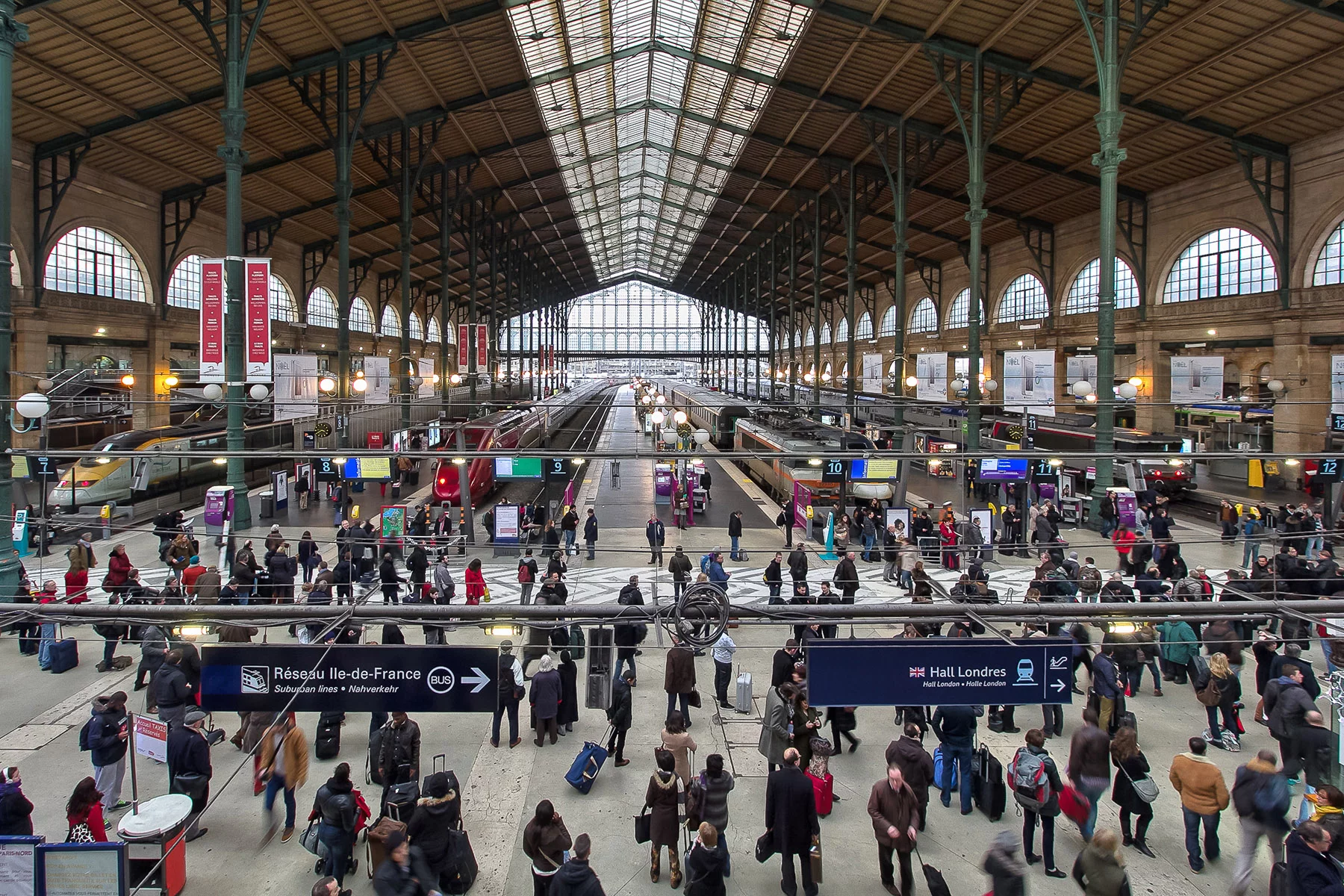
27. The French rail network is the second largest in Europe ninth biggest in the world
At a total length of 29,000km, the French railway network is the second biggest in Europe and the ninth biggest in the world. France was one of the world’s first countries to utilize high-speed technology. The state-owned Société Nationale des Chemins de fer Français (SNCF) introduced the TGV high-speed rail in 1981. France’s high-speed long-distance passenger services are known as Train à Grande Vitesse (TGV) and the standard long-distance passenger services are called Intercités. The country’s current high-speed network exceeds a length of 1,550km. The Tours-Bordeaux high-speed rail project adds another 302km onto the network.
28. The world’s greatest cycle race, the Tour de France, is more than 100 years old
On 1 July 1903, 60 cyclists embarked on the first-ever Tour de France from the Parisian suburb of Montgeron. More than 100 years later, the event has grown to become the world’s greatest cycle race, with around 198 cyclists racing some 3,200 km; primarily around France in a series of stages over 23 days. The 2013 Tour de France was the 100th edition of the Tour de France and around 15 million spectators lined up to watch the 21-stage course for the centennial celebration.

29. The tradition of wearing a white dress originated in France in 1499
Most brides dream of walking down the aisle in a beautiful white wedding gown. But until the nineteen-hundreds, they rarely bought a special wedding dress and opted for their best outfit instead. The popular tradition actually originated in France with the marriage of Anne of Brittany and Louis XII of France in 1499. She wore a white dress to the wedding, marking the start of the popular Western custom. However, it wasn’t until 1840, when Queen Victoria married Prince Albert, that the white dress really took off in popularity and the tradition was cemented.
30. At least 35% of all music played on private radio stations must be French
If you’re not a fan of French music then you might want to stick with your own playlist rather than tuning in to the local radio station. After all, more than a third of the songs you will hear will be French. The French government initially introduced a 40% quote in 1994 to protect France from what the government considered the Anglo-Saxon cultural invasion. However, after a 24-hour rebellious boycott by French radio stations, French MPs voted in favor of reducing the quota to 35% in 2016. Radio stations specializing in foreign music also have a 15% quota.




